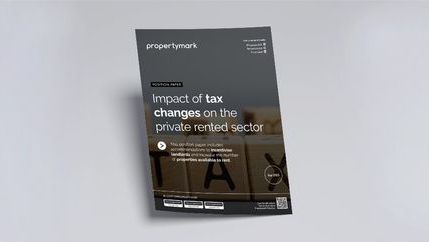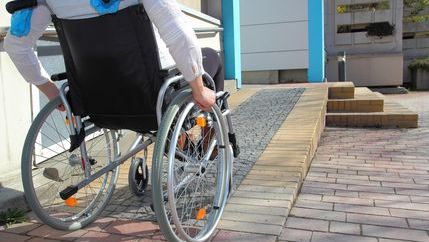
Rent controls don’t work
Propertymark backed the call to introduce a right to adequate housing in Wales, however, while that is interlinked with the work on fair rents, we do not support rent controls.
We believe that the best way to achieve universal adequate housing is by raising standards, and developing closer working relationships between local government, landlords, and their agents, rather than adding further financial hardship to landlords already under strain from unprecedented costs.
Importantly, the Welsh Government must realise that high rents are primarily a product of high demand and insufficient supply. As more homes are made available, market rents will balance out at a reasonable level.
Watch the Committee session on Senedd.tv →
Undersupply needs urgent action
The supply of PRS homes in Wales is a major concern. Despite rising demand, only 16% of landlords said they planned to expand their portfolios. Propertymark’s 2022 report, A Shrinking Private Rented Sector found that across the UK 53% of buy-to-let properties that were sold left the PRS and 84% of respondents had seen the number of new investors in the PRS decrease over the previous three years
Action is needed from the Welsh Government on three issues:
- Exempt landlords from the 4% Land Transaction Tax Levy on the purchase of additional homes, providing they are used for long-term residential let.
- Launch a review of all taxes that relate to private landlords to reduce costs for those wishing to invest in the PRS
- Provide financial support through grants and loans to landlords to upgrade the energy efficiency of their properties.
Better data, better decisions
Douglas reiterated to the Committee that accurate data, statistics, and evidence are vital for good policymaking and to achieve this, Propertymark has long championed the introduction of a Welsh housing survey modelled on the English equivalent.
Housing plays a vital role in people’s lives and property standards, the role of agents and the actions of landlords and tenants, as well as home buyers and sellers, need to be better captured to ensure policymakers have an accurate view of the industry, the impact of policy, and ultimately make better decisions.
A healthy housing mix needs a vibrant PRS
When Committee members asked if an expansion of build-to-rent could be a solution to supply issues, Douglas was quick to point out that it is part of the picture, but that a variety of housing stock is needed to cater for the needs of the current and future Welsh populations. Timothy and the panel were also clear that the PRS should not be seen as the default way to house people who can't afford to buy a home.
According to the Welsh Government’s population projections, the number of people aged 65 or older is projected to increase by 16.1% by the mid-2030s, so bolstering the amount of accessible accommodation for older and disabled people is vital.
While the building of social housing increases to meet demand, the PRS has an important role in housing vulnerable people and those at risk of homelessness. For private landlords to support the work of social housing suppliers we recommend that local authorities consider incentives through grants and loans or council tax rebates. This type of support is increasingly used by local authorities in London.
Effectiveness of regulation
Landlords and letting agents are mainly regulated by the Rent Smart Wales (RSW) regime, where landlords and agents are required to apply for a licence. This involves paying for a licence, completing mandatory training, a fitness and propriety check and for agents’ proof of business safeguards and evidence of managed properties is required.
Propertymark considers this to be a good start in term sof regulation, but there are two things the Welsh Government can do to improve its effectiveness.
- Improve the accountability of Rent Smart Wales. RSW covers the whole of Wales but is managed from Cardiff City Council. While we are relatively supportive of the aims of RSW, we believe that RSW lacks transparency and a clear line of accountability. The work of RSW does not appear to be guided by a central national strategy nor does there appear to be an annual evaluation of its work.
- Extend the training requirements for letting agents. The Welsh Government’s policy intention through Rent Smart Wales is looking at training and the registration of property, whereas we believe regulation should be focused on ensuring that every agent involved in lettings has the right skills to do the job and meets a minimum training standard through qualifications. We believe all agencies should ensure relevant staff are qualified and that staff understand and follow a Code of Practice. Unlike the training requirement through Rent Smart Wales, achieving a qualification should never be a box ticking exercise. Completing the right qualification drives the credibility of the sector and equips agents with the tools to meet the challenges ahead.







